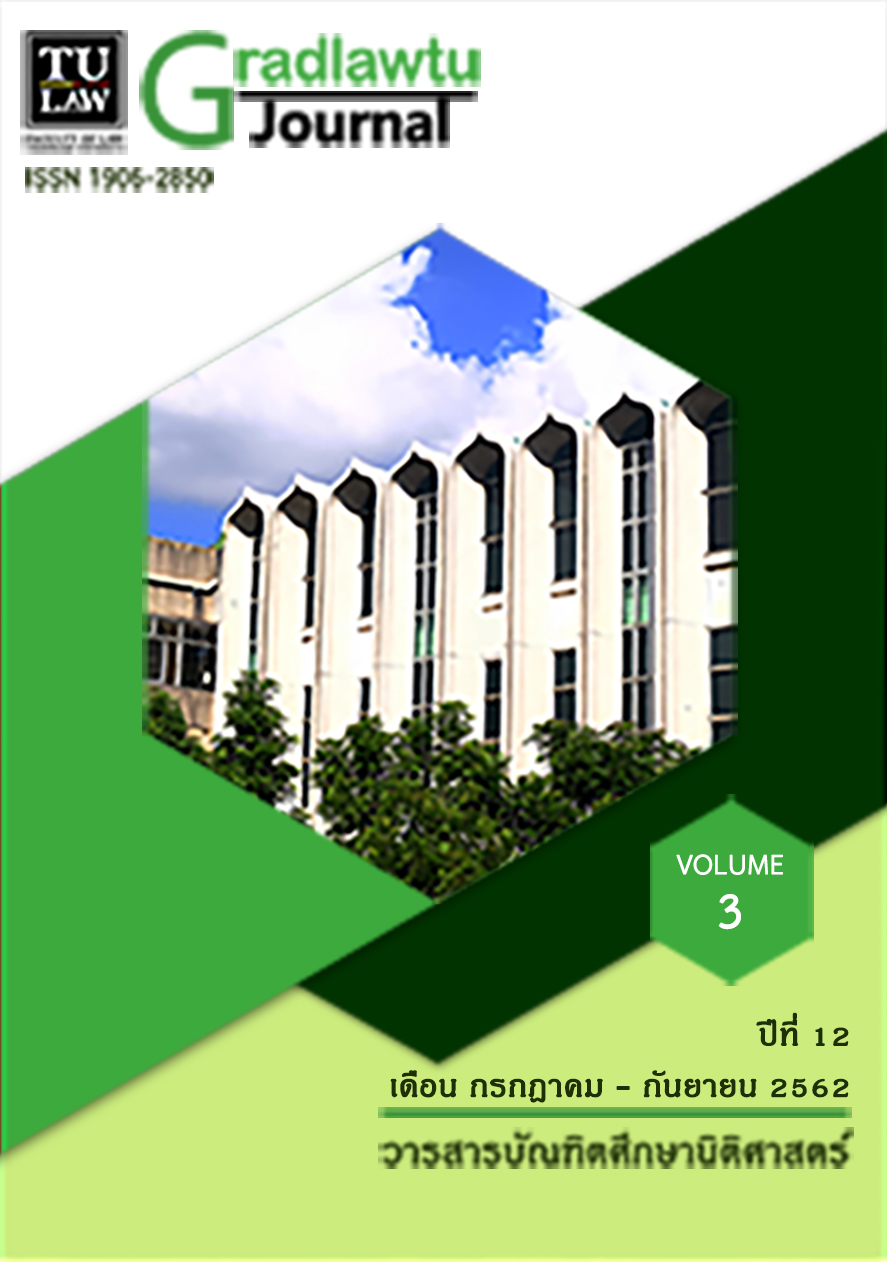MEASURES TO PROMOTE THE RECYCLING OF ELECTRONIC WASTE: A COMPARATIVE STUDY OF THAI AND FOREIGN LAWS
Keywords:
Electronic Waste, RecycleAbstract
Electronic waste is currently considered one of the major environmental issues in a number of aspects including the increasing quantity of garbage, hazardous materials and toxic substances contained in electronic waste as well as measures or guidelines for electronic waste management. In Thailand, electronic waste management is still handled using the general waste management models. The main factor is due to the lack of laws on disposal of electronic waste. Consequently, no concrete guidelines were provided for public authorities who are responsible for the management of this kind of waste. Even though electronic waste is widely seen as a problem, such waste contains useful components that can be reused as well. If the proper method of separation of electronic waste components has officially been imposed, the recycling process of e-waste can be handled efficiently and the number of electronic waste is expected to be reduced.
Therefore, this article aims to study measures on the e-waste recycling process in foreign countries as well as the system that ensures the effectiveness of the recycling process in order to apply necessary rules and practices which are suitable for the context of e-waste management in Thailand.
Downloads
Published
Issue
Section
License
บทความหรือข้อความคิดเห็นใด ๆ ที่ปรากฏในวารสารบัณฑิตศึกษานิติศาสตร์เป็นความรับผิดชอบของผู้เขียนบทความโดยเฉพาะ คณะนิติศาสตร์ มหาวิทยาลัยธรรมศาสตร์ และกองบรรณาธิการไม่จำเป็นต้องเห็นด้วย



